New York Climate Weak
The Drain is a weekly roundup of environmental and climate news from Legal Planet.

Now is the time for courage. Now is not the time to pull punches or pull speakers. We need more speech — not enforced silence.
That’s why I’m not a big fan of shutting down campus speakers, even those who might spread climate obstruction. Like Vicki Hollub, the CEO of Occidental Petroleum, who was being interviewed this month as part of Harvard’s Climate Action Week when protestors disrupted the event. I think there is a way to meaningfully interview corporate actors like Hollub. I don’t think much of the rallying cry against “platforming” speakers, especially well-known corporate or media personalities who have their own platform.
That said, there is a right way and a wrong way to present these speakers on your platform. If academic or journalistic institutions are going to interview a Big Oil CEO or Trump administration official, they have a responsibility to ask tough questions, challenge lies, allow audience engagement, and place their comments in context or alongside other panelists.
This is top of mind because New York Climate Week is underway, and Trump’s energy secretary is one of the scheduled guest speakers. I’m also thinking about this after reading a New York Times Q&A with Chevron CEO Mike Wirth — a Business Section article that provides a good tutorial on how not to interview a Big Oil executive in 2025. It failed to hold power to account.
To be sure, a “Corner Office” interview is inevitably going to involve cordial questions and genial framing. I have no problem with the colorful anecdotes that show Wirth as a conscientious boss. (He is known for writing copious amounts of personal thank-you notes to his co-workers, we’re told). This is par for the course in business profiles.
But then the business reporter asked Chevron’s CEO, “Do you see the oil and gas industry as a contributor to climate change?” It’s a poorly worded, passive question. (Imagine asking the Phillip Morris CEO if they “see the tobacco industry as a contributor to lung disease”?) Wirth’s response: “Human activity is a contributor to climate change. We supply energy that is used. If humans did not consume energy or consume oil and gas, we wouldn’t be in business.” It’s an expertly worded, passive answer.
There’s no reason to ask the head of the nation’s second-largest oil company his opinion about settled science unless you’re going to challenge his avoidance of the question; press him on Chevron’s downplaying of climate change; or underline how the company’s external messaging is at odds with its longstanding internal planning. The reporter’s only follow-up (judging from the edited, condensed interview) was whether Chevron is “able to provide more options or push customers in a different direction.”
Chevron loved this interview. Look at how giddy their own PR machine was to rave about and share the piece on their own platform. “Speaking to The New York Times in a wide-ranging interview, Chevron Chairman and CEO Mike Wirth detailed how the company is tackling today’s energy challenges,” their e-mail blast reads. Credibility, granted. Oof.

While we’re at it, does the New York Times have an ethical obligation to disclose that Chevron is also a paying customer of its native advertising, aka its “multimedia branded storytelling”? Chevron enlists T Brand, the custom content studio of the New York Times, for paid promotion that looks like a feature story. “We help brands find our audience,” especially Gen Z, their site reads. Like this recent “paid post” called “Meet the Problem Solvers,” about how Chevron employees are “remaking the energy system for the future” through “breakthrough technologies, novel business models, efficient execution, supportive policy and more.” The post positions Chevron as a leader on “limiting emissions” and “efficiency” without mentioning pollution, greenhouse gases, global warming, or climate. New York Times Advertising’s guidelines say they aim to keep out ads that are “intentionally misleading,” that “advance baseless claims,” or include “inference and mistruths” in order to “not present our readers, viewers or listeners with ads that undermine our mission to seek the truth and help people understand the world.”
Native advertising like “Meet the Problem Solvers” fails that mission. So does the corner-office profile.
Now, the NYT has a deep bench of excellent climate and energy policy journalists. I link to their work most weeks. Many of them will be leading interviews on stage as part of New York Climate Week. Whoever is leading the interview with Energy Secretary Chris Wright has their job cut out for them, given Wright’s recent sharing of misinformation in published reports and on social media. Ideally, Wright would be seated on a panel next to Bill McKibben or some other environmentalist and be forced to answer audience questions. Failing that, our intrepid interviewer must confront, fact-check, and definitely pull no punches.
Welcome to The Drain, a weekly roundup of environmental and climate news. Our song this week is one of the better climate anthems in recent years, “Spitting Off the Edge of the World” by New York’s Yeah Yeah Yeahs.
Other Media and Messaging Stories
Elsewhere, we are learning a lot more about malevolent corporate behavior thanks to accumulating research on climate obstruction and journalism outfits that cover the growing field.
A new book by the Climate Social Science Network at Brown University seeks to pull together the work of more than 100 researchers on climate obstruction. The Drilled podcast from Amy Westervelt has a new season rolling out called “Obstruction” and Episode 1 is an interview with three of the researchers involved. “Our theory of change is that we’ve failed largely at addressing climate change because we didn’t understand the opposition that we faced, and we were quite naive about that,” Brown University’s Timmons Roberts tells Westervelt.
This week’s Heated newsletter from Emily Atkin has a great story detailing how the late Charlie Kirk was “a fossil fuel industry plant” working hard to chip away at young Americans’ rising concerns about climate change, armed with oil and gas funding.
Congrats are in order! The organization Covering Climate Now just announced the winners of its annual journalism awards, including categories like Fossil Fuels, Disinformation, and Extreme Weather. CCN’s 3 climate journalists of the year: Vanessa Hauc of Noticias Telemundo; Thaslima Begum of the Guardian; and Ayoola Kassim of Channels Television in Nigeria.
Plus there’s a new media organization devoted to covering America’s 660 million acres of public land. Launched last week by former Outside editor-in-chief Christopher Keyes, RE:PUBLIC plans to deliver “independent, in-depth reporting on conservation, access, and the politics shaping public outdoor spaces.”
And I pledge allegiance to ‘everything bagels’ so I’m a sucker for any critique of the ‘Abundance Agenda’ that starts by defending the combination of onion, garlic, sesame and poppy seeds. Ben Beachy has penned a long journal article for Democracy that’s getting attention. It outlines a future climate agenda that lasts longer than the Inflation Reduction Act. His proposal: Offer serious answers to the cost of living and don’t misdiagnose the problem of how long it takes to build clean energy by blaming ‘everything bagel’ policies. “Instead of sidelining labor and equity standards, an abundance agenda should target the real sources of delay in building clean energy,” he writes, “backlogged queues, a growing list of local, NIMBY-esque siting restrictions for clean energy projects, too-little-too-late forms of community engagement that risk community opposition to new projects, and supply chain shortages.
The World
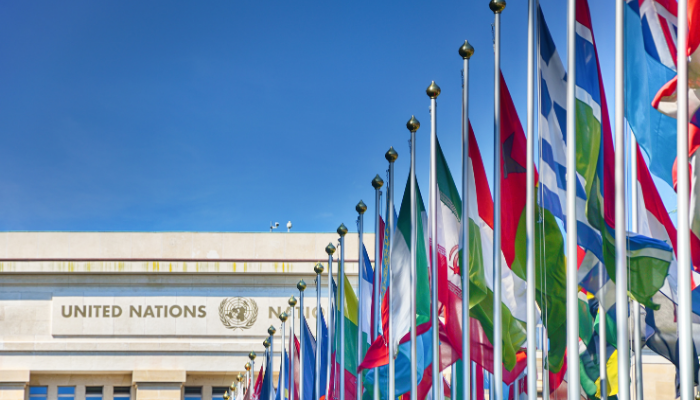
More than 100 countries are due to speak on their new 2035 emissions-cutting pledges at the UN chief’s climate summit on Wednesday.
Climate ministers for European Union countries said last week that the bloc will blow the deadline to set new emissions-cutting targets due to their internal divisions over the plans, Reuters’ Kate Abnett reports. “The EU had planned to agree new climate targets for 2040 and 2035 this month.”
This is important: A new report from the Stockholm Environment Institute finds that if all of the planned new extraction takes place, the world will produce more than double the quantity of fossil fuels in 2030 than would be consistent with the Paris Agreement’s goal of holding global temperature rises to 1.5C above preindustrial levels. Only the UK, Australia and Norway plan to reduce production of oil and gas by 2030, compared with 2023 levels, Fiona Harvey reports for the Guardian. And the report doesn’t even take into account Trump administration policies, NPR’s Jeff Brady notes.
The global impact of China’s green tech policies is the subject of this NYT Magazine piece by Brooke Larmer. “China was able to find a dynamic that dovetails well with the Paris Agreement,” my UCLA Law colleague Alex Wang told Larmer, “but is also very effective in achieving all of these other national security goals.”
Exxon Mobil is ramping up attacks against the EU’s corporate sustainability law, running straight to Trump, warning that the regulation will lead to more businesses leaving Europe, Reuters reports.
California and Los Angeles
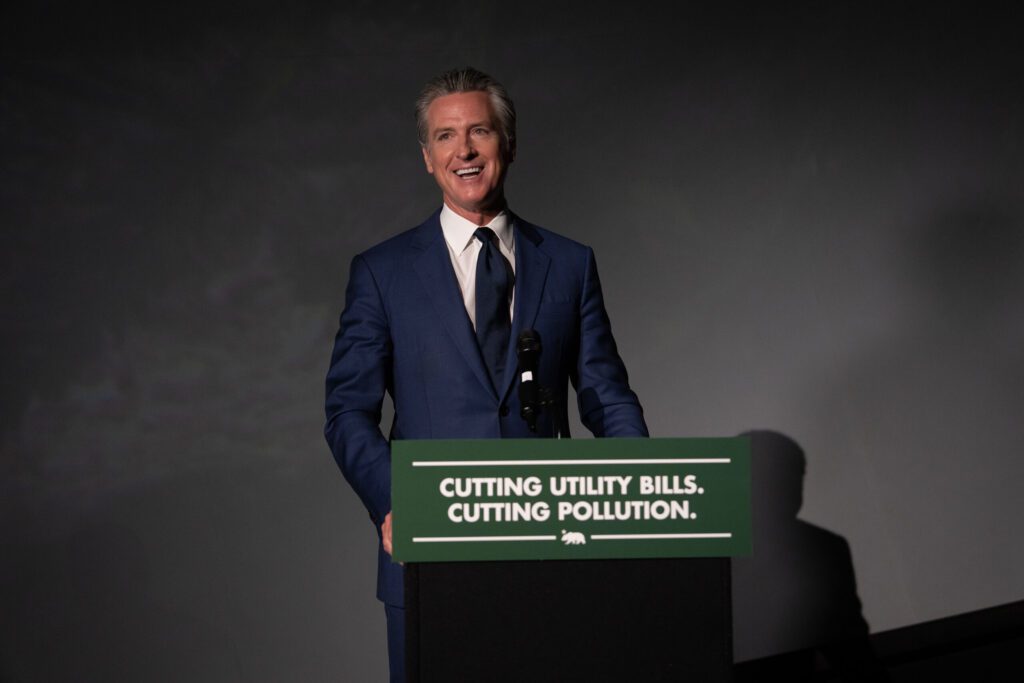
“Cutting utility bills. Cutting pollution” was the marketing message at Gov. Newsom’s signing of AB 1207, the Cap-and-Invest bill, and the energy package last Friday. “A week and a half ago we weren’t even sure if it was going to get done,” Assemblymember Jacqui Irwin, who headed a working group on the subject, said at the signing. “60 billion dollars in savings” should be the headline, Gov. Newsom said. “Newsom signs California climate package aimed at lowering gas and utility costs,” was the LAT headline.
This week, Newsom and many of the state’s climate policy leaders from the Legislature, CARB, and the Energy Commission are at New York Climate Week flexing California’s muscle and signing a memorandum with Brazil, Politico’s Camille von Kaenel reports. On Wednesday, California Attorney General Rob Bonta is addressing Columbia’s Climate School.
We saw lots of continued attention to, and analysis of, the slate of bills, especially Josh Becker‘s SB 254. Sammy Roth spoke with Becker for his Boiling Point column and did a podcast with TURN’s Matthew Freedman who gave the Legislature a “passing grade” (let’s call that a C minus). “The state’s lawmakers got serious about reducing electricity rates this session,” writes Jeff St. John. “Despite some setbacks, we made more progress than I thought possible,” Ellie Cohen writes for the Climate Center.
One of the bills missing from my roundup last week is AB 1167, which lawmakers passed making California the seventh state to approve a bill limiting investor-owned utilities from using customer money to pay for political and lobbying costs.
Another is SB 302 (Padilla) which would prevent the state from taking a cut of the federal tax incentives renewable energy developers receive. Noah Baustin writes at Politico that the Trump administration’s hostility to the renewable energy industry may spur a gather-the-wagons moment around the bill.
And AB 740 (Harabedian) will accelerate the use of virtual power plants — networks of thousands of distributed energy resources like smart thermostats, home batteries, smart plugs, electric water heaters, and electric vehicles.
Despite Trump’s war on wind, the state of California is staying the course thanks to voter-approved funding from the California climate bond and other efforts to support wind development, Hayley Smith reports. “The plan eventually could see 1,600 turbines as tall as the Eiffel Tower in federal waters 20 to 50 miles offshore, producing enough electricity for 25 million homes.”
But Rep. Scott Peters who represents parts of San Diego has accused the Department of the Interior’s Bureau of Land Management of halting permitting on solar projects in California.
Two recent, related UCLA studies reveal the extent of L.A. and California wildfires’ impact on air quality and aim to help people make safer choices during wildfires. And Tony Briscoe reports for LAT on a new study that suggests deaths from exposure to wildfire smoke could be America’s most significant climate health risks, affecting all regions.
Southern California Edison, without accepting liability, is now offering each victim who lost their home in the Eaton fire that ravaged Altadena hundreds of thousands of dollars, according to a draft of its planned compensation program.
The CPUC last week approved a 9% rate hike for SCE — roughly $16 per month for the average Edison customer starting in October.
Metro’s A Line to Pomona opened last Friday. “The world’s longest light rail line (today 48.5 miles) adds nine more miles to span 57.6 miles – from Long Beach to Pomona,” notes Joe Linton at Streetsblog.
LA’s City Council on Friday approved a $2.7 billion plan to renovate the Convention Center for the 2028 Olympics by a vote of 11 to 2, Alissa Walker reports. One of two “no” votes came from Councilmember Katy Yaroslavsky, the city’s budget chair, who gave an impassioned speech.
Last week, a San Francisco-based charging site developer called EV Realty broke ground on what John St. John reports is one of California’s biggest fully grid-powered, fast-charging depots for electric trucks so far. In San Bernardino.
L.A. County broke ground on Puente Hills Regional Park, a 140-acre park that will be County Supervisor Hilda Solis’ legacy project, and L.A.’s first new regional park in decades, Streetsblog Los Angeles reports.
Energy and Pollution
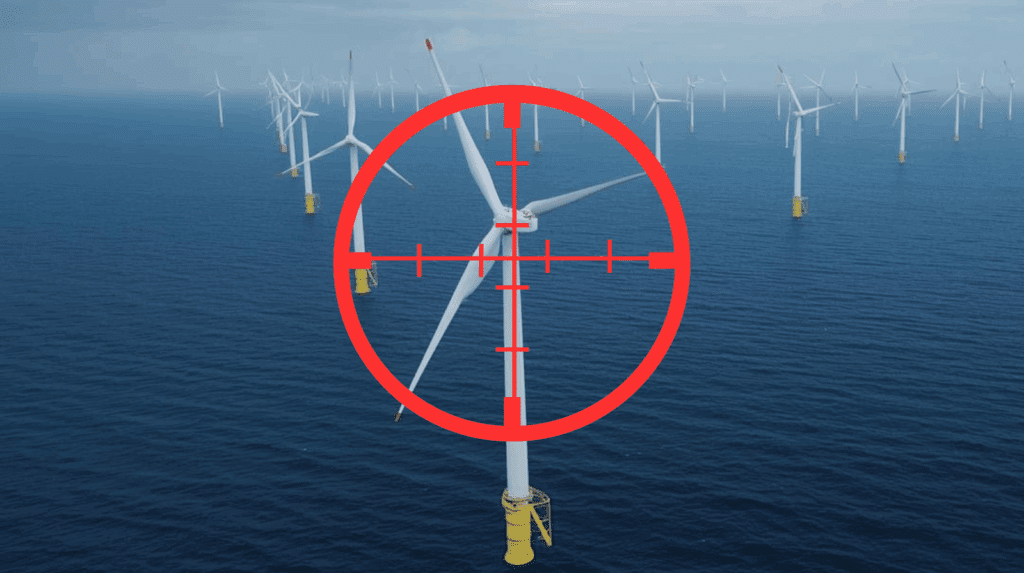
Revolution returns! A federal judge gave the green light on Monday to Danish energy company Orsted, allowing it to restart work on its nearly completed Revolution Wind project off Rhode Island, Brad Plumer and Lisa Friedman report for NYT. The judge granted a preliminary injunction to Revolution Wind saying it “has demonstrated likelihood of success” on its claims, and that the company would suffer “irreparable harm” if the Trump administration’s stop work order stayed in place. It’s Trump’s first big legal defeat on offshore wind, Jael Holzman writes at Heatmap.
These attacks on offshore wind are a “one-off exception,” Energy Secretary Chris Wright tells Axios in an interview, trying to allay energy investors’ concerns.
A bipartisan House group released a permitting reform “framework” last week that aims to make it easier to build transmission lines, pipelines and other power projects in the face of rising energy demand. “The 47-member Problem Solvers Caucus intends to turn the framework into legislation,” writes Ethan Howland at Utility Dive.
New insights from MethaneSAT, the EDF satellite, reveal a “striking contrast” between states in the Permian Basin: In New Mexico, which has strong methane protections, methane intensity is less than half that of operations in less regulated Texas.
Per capita carbon dioxide emissions from energy consumption fell in every state from 2005 to 2023, mostly due to (wait for it) burning less coal, according to a recent U.S. Energy Information Administration report.
But the latest edition of the Sierra Club’s “The Dirty Truth” report finds that the country’s biggest electric utilities are collectively doing worse on climate goals than 5 years ago, handing them an aggregate grade of “F” for the first time in the report’s history.
Climate Litigation
Two weeks ago, I wrote about the latest youth climate plaintiffs in Montana. These youth and expert witnesses showed up for two days of hearings in a packed federal courtroom in Missoula to testify that 3 of Trump’s executive orders aimed at “unleashing” American energy violated their Constitutional rights to life and liberty. I wrote about the case here. Karen Zraick was in the courtroom for the New York Times and quotes the government lawyer as arguing that the plaintiffs were asking one judge to supervise national energy policy. “This is, at its core, an anti-democratic lawsuit,” he said.
Meanwhile, the Trump administration filed a lawsuit to challenge Vermont’s Climate Superfund Act, its version of Make Polluters Pay legislation which set up the nation’s first program to force large fossil fuel companies to pay for adaptations to deal with the effects of climate change. My UCLA colleague Ann Carlson blogged about how EPA’s proposed repeal of the endangerment finding undermines the U.S. position in the Vermont case.
And a lawsuit seeking to hold fossil fuel companies responsible for the hurricane devastation in Puerto Rico in 2017 was dismissed by a judge.
Geoengineering
Well-known climate scientist Zeke Hausfather joined David Keith in a New York Times Op Ed that argues that if small-scale solar geoengineering could save lives and protect the environment, it is at least worth discussing for the future. We should take such an idea seriously because the costs of losing accidental sulfur cooling were made painfully evident this year when heat waves pushed temperatures above 120 degrees Fahrenheit in the Middle East and North Africa,” they write.
Meanwhile Marjorie Taylor Greene led a hearing entitled “Playing God with the Weather — a Disastrous Forecast” that sought to expose, and confuse, the separate topics of weather modification and geoengineering. The hearing follows the introduction of the Clear Skies Act in July by the subcommittee’s chair, Congresswoman Marjorie Taylor Greene.
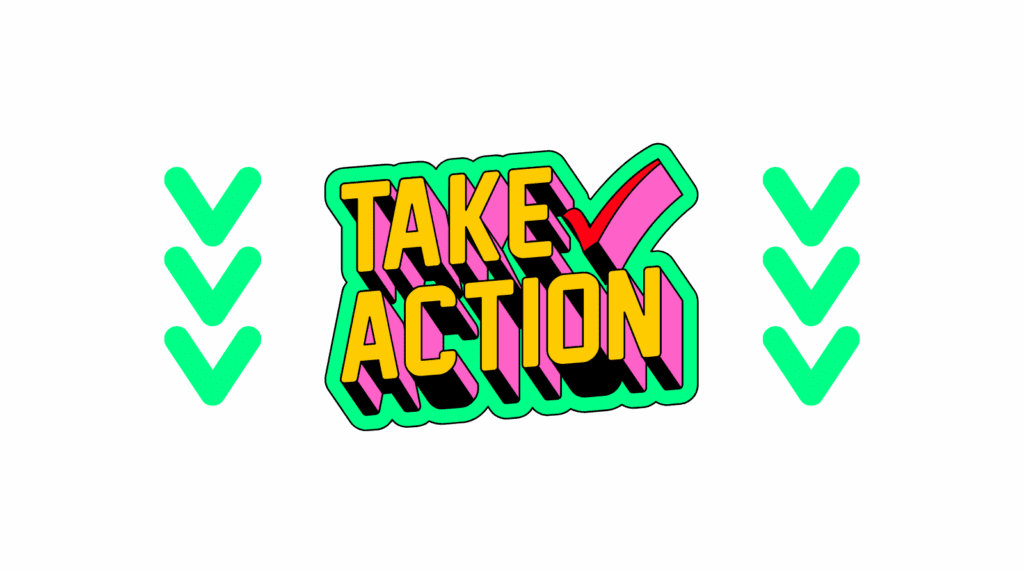
Tell the LA Metro Board to get more electric buses. Only 3% of LA’s transit buses are zero-emissions models, and Metro’s current plans envision increasing this number to just 12% by the 2028 Olympic and Paralympic Games. Earthjustice (h/t Candace Youngblood) has an easy portal to weigh in here.
Ben Gibbard of the indie rock band Death Cab for Cutie announced that he’s running the New York City Marathon as a fundraiser for the climate group Protect our Winters, a nonprofit run by athletes and outdoor enthusiasts pushing for systemic solutions and climate policies. You can donate a dollar per mile to the effort to support a musician doing something about the climate crisis.
Join the Emmett Institute for a timely lunchtime webinar about the proposal to revoke the endangerment finding on Monday, September 29. “Up in the Air” is a panel discussion with UCLA experts and others.
It’s New York Climate Week, but every week is climate week at Climate Map LA.




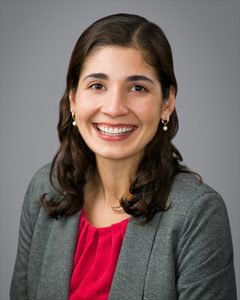
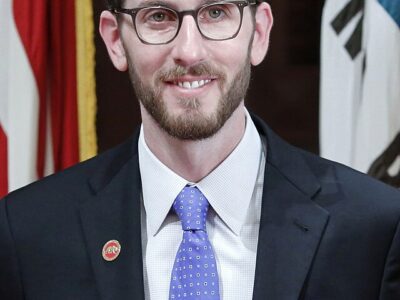
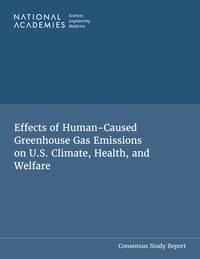
Reader Comments